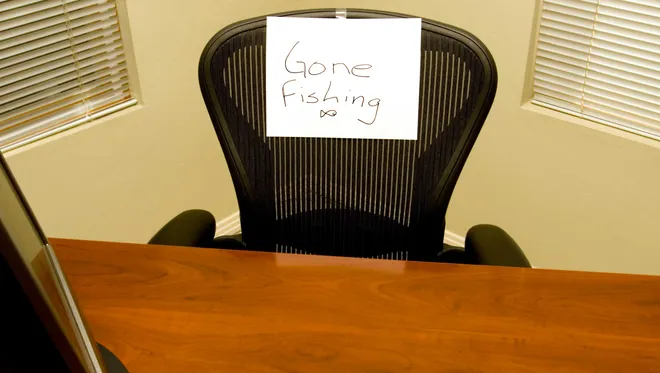This Man Skipped Work For 6 Years and Continued To Receive Salary | No one Noticed!
Can you imagine receiving a paycheck without having to appear for work for six whole years? Not a fiction, it is a true story. In what must go down in history as one of the most mind-boggling cases in workplace monitoring, one man actually succeeded in shunning work for an uninterrupted period of six years without anyone noticing. Joaquín García, a civil servant in Cádiz, Spain, had a yearly salary of €37,000 for six years without doing actual work. No one noticed his absence until 2010 when officials planned to give him an award for 20 years of service! Let’s dive into the details of this story.
Skipped Work for 6 Years and How Did No One Notice?
At first, the story just could not have been believable. How does one not come to work for six years and not get caught? Firstly, the worker in question, a Spanish municipal employee, took advantage of some serious loopholes in the mechanism developed to track attendance. Secondly, he kept such a low profile. His absence would have gone unnoticed. Thirdly, there was no immediate manager or regular performance reviews that would have brought about the difference. All these factors combined just managed to provide that blind spot which allowed him to have skipped work for 6 years.
When officials did the normal checks, they found that he hadn’t gone to the office in years. Everyone believed someone else was keeping track of his attendance, which caused the misunderstanding to spread among others. When asked, García claimed he went into the office every day but did nothing. Fearing unemployment, he said nothing and read all day at the office, developing an expertise on the philosophical teachings of Baruch Spinoza.
After an investigation, they ordered García to pay €27,000. However, because he had retired by the time the sentence was imposed, he escaped any further penalty. Let’s go into how this super oversight happened and maybe what we can learn from a case where someone successfully skipped work for 6 years.

More astonishing than the very deceit itself, however, was the discovery of the deceit. It came only when he was due to receive an award for long service. Imagine the surprise when the administration realized that he had never been at his desk for over half a decade! This sent ripples right through the workplace and meant an immediate review of the monitoring practices. Such a prolonged period of skipped work for 6 years certainly prompted a lot of questions.
Systemic Loopholes Exposed
This incident represents another brilliant example of systemic failure in some organizations. Firstly, this is an urgent need for attendance monitoring. A good digital solution that sends real-time alerts would have saved the supervisor from this situation and possibly noticed he skipped work for 6 years. Secondly, regular performance appraisal is another measure. It does not only measure productivity but checks the physical presence of an employee.
Furthermore, this case requires a re-evaluation of internal controls by all organizations worldwide. Making sure that every staff member is responsible daily not only improves productivity but also ensures the organization’s accountability. Moving forward, stricter control may be the key to securing confidence and productivity at work, and to prevent someone from skipping work for 6 years unnoticed.

Skipping Work: The Psychology of Deception
Fascinatingly, such an act has an intriguing psychology behind it. Firstly, what will make a person take the risk of not coming to work and still claim a salary? It is usually entangled in a complex mix of disgruntlement, entitlement, or thrill-seeking behavior. When someone doesn’t face immediate consequences, they often feel encouraged to continue harmful actions, especially when they are detached from the impact of their deceit. Such cases, where individuals have skipped work for 6 years, are particularly interesting to psychologists.

This, in turn, presents a scenario in which one can question workplace culture. Does an environment that has no strong checks and balances permit such dangerous behavior? Transparencies that allow one to point out another in such regards tend to prevent this from happening. Ensuring such vigilance could prevent incidents like someone having skipped work for 6 years without anyone noticing.

Conclusion
Now, going into the psychology underlying such an act is interesting. First, there is basically a huge risk taken as far as one’s career is concerned by not showing up while claiming a salary. It involves a complex mix of dissatisfaction, entitlement, or thrill-seeking behavior. Second, in the absence of immediate consequences, it emboldens the person to continue with the deceit when he feels disconnected from the impacts of his actions. He may convince himself to skip work for a surprisingly long time, like 6 years.
This also brings up another issue-workplace culture. Does a setting devoid of strict checks and balances, in a way, promote this sort of risk-taking behavior? Encouraging transparency involves creating a workplace culture where people actively hold one another accountable for their actions. This approach helps prevent dishonesty and fosters integrity among team members. Hence, fostering accountability could help prevent someone from skipping work for 6 years unwatched.
Also read,







